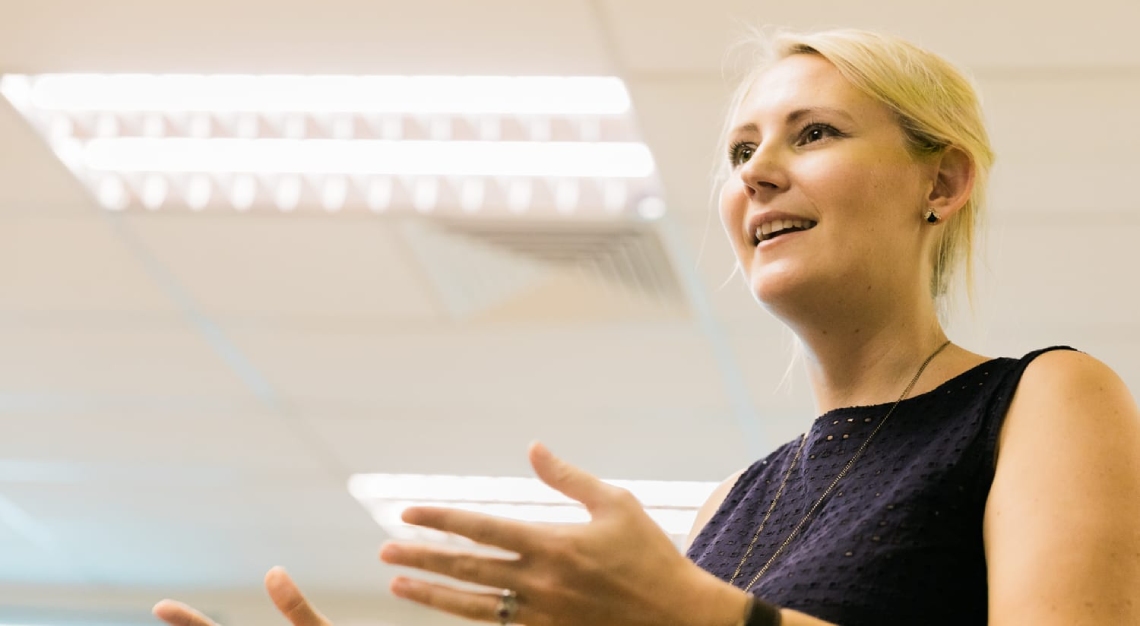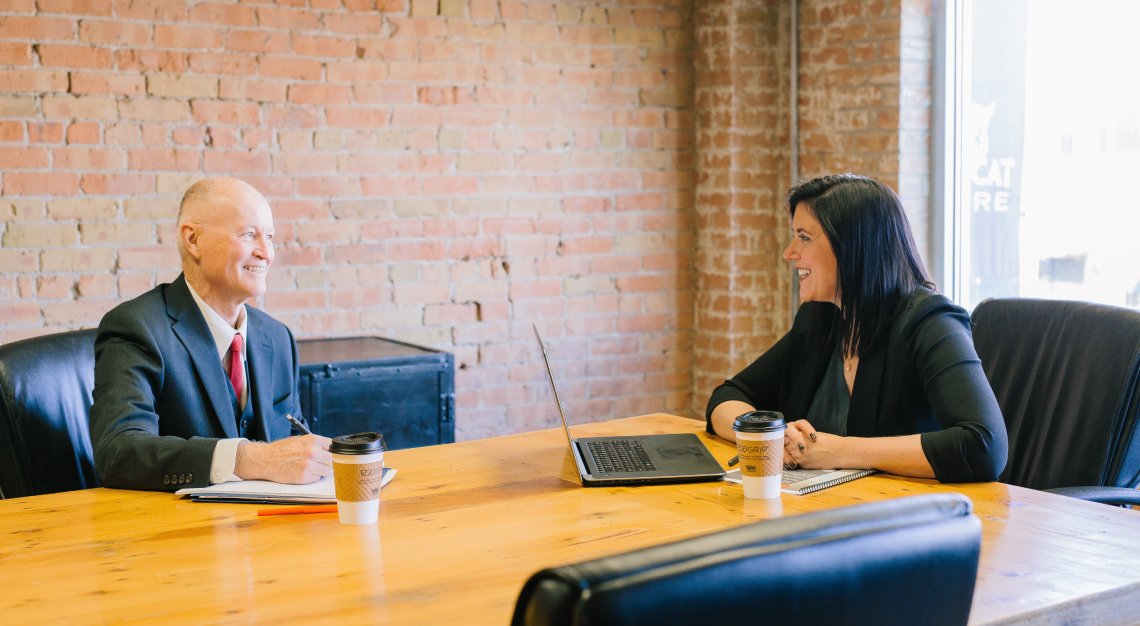The Female Gaze spotlights female bosses empowering their respective industries. This week, we talk to Tess Mackean from TalentTrust about recognising privilege
My first thought: Tess Mackean’s voice is like honey. There is absolutely no other way to describe it, because she could talk to me about an ant and I would be absolutely enthralled. In some ways, I suppose it’s her personality, too. She sits opposite me in a small glass room and we sip our drinks, with a conversation that goes from charities to profound self-reflection.
Mackean is the CEO of TalentTrust, a company that brings a refreshing spin to charity in Singapore. At the heart of it, it’s about skills-based volunteering. Essentially, Mackean explains to me, the company connects business and professionals to charities, matching skills with needs. The premise is wonderfully optimistic and earnest: To create sustainable and meaningful change.

While this concept is generally new in both Singapore and the broader APAC community, it was found to be incredibly helpful in the UK under Pilotlight. The original goals had been rooted, fundamentally, in ‘capacity building’. For many charities, it’s not exactly finances that are lacking. Instead, many charities require internal resources to best optimise the money they receive.
The statistics for success are at the top of Mackean’s head. “The statistics they had in the UK was that a charity that had worked with Pilotlight grew on average by 50 per cent over the next two years, whereas the UK average was five per cent.”
Singapore presented the perfect place in APAC to begin such a novel venture, having the “perfect combination” of a large number of charities with a wealthy and experienced business environment.
Such business assessment seems accurate. Though TalentTrust is young in comparison to Pilotlight, it’s already been attaining dramatic results. Having just released its five-year impact report, TalentTrust found that 100 per cent of charities it worked with are more confident and strategic. And it has worked with over 35 charities to date.

Though TalentTrust is, in its own right, incredibly impressive, the woman at its helm is even cooler. In our hour-long conversation, Mackean is perceptibly warm and friendly with an idealistic charm that almost reminds me of MacKenzie McHale from The Newsroom.
A white female, the narrative of Mackean aiding charities in Singapore might appear problematic. In the 21st century, we’re all too cognisant of the urgent need for intersectionality in many social causes. The age-old narrative of the ‘White Man’s Burden’ is patronising and incredibly outdated.
But Mackean is astoundingly aware of her privilege, and she encourages many of us to also take a moment for such self-reflection. For Mackean herself, it’s been a “fascinating journey”. It had begun, as it had for many of us, with Instagram.
She’d started by following “deeply outspoken black women” on Instagram. She admitted to initially reacting defensively, feeling more comfortable with the typical rhetoric of “being kind” instead. It’s a nice, easy story to buy into: be kind and see progress. But as hate crimes all over the world are increasingly exposed, Mackean, like so many of us, has realised how simply being kind and patient has not done much for many of the most marginalised communities.
She tells me, “I try to constantly acknowledge that I have to stop taking up so much space. Instead, it’s about trying to uplift other people into those spaces.”
As we reflect, sitting with our privilege and chatting about the amount of hate and inequity there is in the world, I am struck by how sheltered we are. We sit in the little glass meeting room with Nespresso-ready lattes warming our hands. It’s remarkably symbolic. How many of us exist in this glass dome in our world, comfortable in our privilege? How many of us attempt to empathise but still resist discomfort, preferring instead to sigh from a distance? And critically, what will it take for us to break this glass and move toward change?
“What advice would you give someone who has just begun their journey of self-reflection?” I ask.
It is silent for a moment and incredibly uncomfortable. But this discomfort is good. In fact, many of us need to be uncomfortable. “Do all the listening you can,” she says, “Make it almost unpalatable for yourself, with uncomfortable conversations. Ask yourself why you feel so defensive. Unpack that. Immerse yourself in so many different voices and listen to their experiences. Notice the injustices around you.”

Mackean’s reflection of her privilege began with the body positivity movement, but it evolved into something much greater. The intersections in issues became more apparent. She immersed herself in conversations about race, gender and the plight of the disabled. “It’s a challenging journey, but we need to try to be more aware of these differences of experience. For me, it’s [about] taking less of a seat at the table and using my privilege to help bring forward the voices of those whose perspectives are not normally heard.”
The issue of privilege continues to shape many of the conversations we’ve seen online. Increasingly, the authenticity behind this self-reflection poses an issue. It’s the phenomenon of virtue-signalling, that is, where one “benefits from sharing your virtue, without necessarily walking the talk.”
I ask Mackean what she thinks of this, and there’s a knowing smile on her face. “Well, if you intend to talk about a topic on social media… make sure that there is action behind that beautifully framed quote.” Innate in charity is what we, the giver, receive from our actions. But there is a need to consciously not put yourself at the heart of it, to never frame oneself as a messiah. “This goes for both individuals and NGOs.”
As we all grow to be more conscious of the discourse around us, a lot of debate centers around this idea of space. Who deserves space? How much space? Who determines this?
The question of space is especially significant in our discourse of cancel culture: Is ‘cancelling’ ever right? Do we need to be a bit more flexible with our space, a bit more forgiving of the margin of error we allow?
For Tess Mackean, the answer is a resounding yes. Mistakes are inevitable in this process, and we all need to learn to forgive a little bit more.
As a society, there is a stark need to have more uncomfortable conversations – difficult, heavy conversations. Perhaps, it is less about scolding those who make mistakes, less about scaring people. Conversations are two-way: we teach, and we listen. Then, hopefully, we’ll all learn.






